
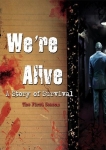 We’re Alive: A Story of Survival – Season One
We’re Alive: A Story of Survival – Season One
By Kc Waylan and Shane Salk; Performed by a full cast
12 CDs – Approx. 14.2 Hours [AUDIO DRAMA]
Publisher: Blackstone Audio
Published: 2011
ISBN: 9781455114580
Themes: / Horror / Zombies / Post-Apocalypse / Los Angeles /
This exciting audio drama is based on an immensely popular podcast that has received hundreds of positive reviews and has had over four million downloads—and counting.
Uneven and slightly amateurish, but also fun, mildly addictive and highly listenable, We’re Alive: A Story of Survival, the first season (Modern Myth Productions, LLC) should appeal to fans of the zombie/post-apocalyptic/survivalist genres.
Unlike most audiobooks, which typically feature a single narrator reading text in unadorned style, We’re Alive is an audio drama. It employs a large cast, incorporates a wide range of sound effects, and is scripted in a way that caters to the ear, emphasizing dialogue and interpersonal relationships over lengthy descriptive narrative. Our minds are left to fill in the gory details, and it works. It’s simultaneously fresh and retro, reminding me of what the old radio shows of yesteryear must have been like. We’re Alive was launched and remains an ongoing podcast (check it out HERE) but you can obtain the entire first two seasons from Blackstone Audio, Inc.
The storyline is about what you’d expect: A zombie apocalypse strikes without warning, quickly overwhelming most of the population. Three young Army reservists (Michael, Angel, and Saul) commandeer a humvee and seek out survivors in downtown Los Angeles. After rescuing a couple civilians they find an apartment building, clear it of zombies, and begin to fortify it, rigging it up with a generator and stocking up on food, water, and ammunition. More survivors eventually trickle in and/or are rescued by the group, including Burt, an aging Vietnam veteran who acts and sounds a lot like Clint Eastwood. Soon there’s a small but thriving community holed up in the apartment building.
We’re Alive has a few problems. I had a hard time distinguishing between some of the women. The men are generally given more agency and are more fully developed characters. There are some writing weaknesses, including characters that bicker and bitch over trifles and at times seem more concerned with saving face than staying alive. This creates plenty of distractions and gets the group in more trouble than it should, at first with zombies and later with a greedy, nasty group of human convicts (the “Mallers”). Also, a few of the characters’ skill-sets seem a bit too fortuitous (one of the women is a pro archer — rather convenient).
The story also uses zombies that break sharply with most undead traditions. Some have a rudimentary intelligence, at least one can talk and strategize, and at times they are directed by some unseen controlling force to capture and carry away their victims rather than consuming them. While I’m not a strict zombie purist, these traits lessen their scare factor and weakened them as a threat. Zombies are at their best when they’re relentless, merciless eating machines; take away that characteristic and they become caricatures. There’s even some species of large zombie monsters lurking in the background, though they’re not described well and it’s impossible at least through season one to determine if they’re a large zombified animal or a creature of pure fancy. In short, if you’re a zombie purist, or expecting undead in the Romero mold or new Dawn Of The Dead style, be prepared for a lot of “rule breaking.”
But We’re Alive also has plenty of good things going on, enough to give it my recommendation. Most of the characters grow on you and the voice acting is reasonably good. There are enough plot twists and turns to keep you guessing. There’s a hardly a dull moment—when not fighting the undead or the Mallers, the survivors are fighting amongst themselves, often chafing against Michael’s inflexible never-question-my-orders military style of leadership. Ex-lawyers and teachers find themselves growing vegetables on the rooftop, serving as quartermasters, or standing guard duty, with inevitable grousing and dereliction of duties. As the survivors’ supplies start to dwindle, they’re forced to take increasingly dangerous runs for food and ammo into the “hot zone” of zombie and looter-infested downtown L.A. There’s also a larger backstory about the hows and whys of the zombie outbreak that’s still unrevealed but will undoubtedly be a part of latter seasons.
While it lacks the moral/philosophical questions and hardcore grittiness of The Walking Dead, We’re Alive is nevertheless fun stuff and I’m looking forward to listening to season two.
Posted by Brian Murphy

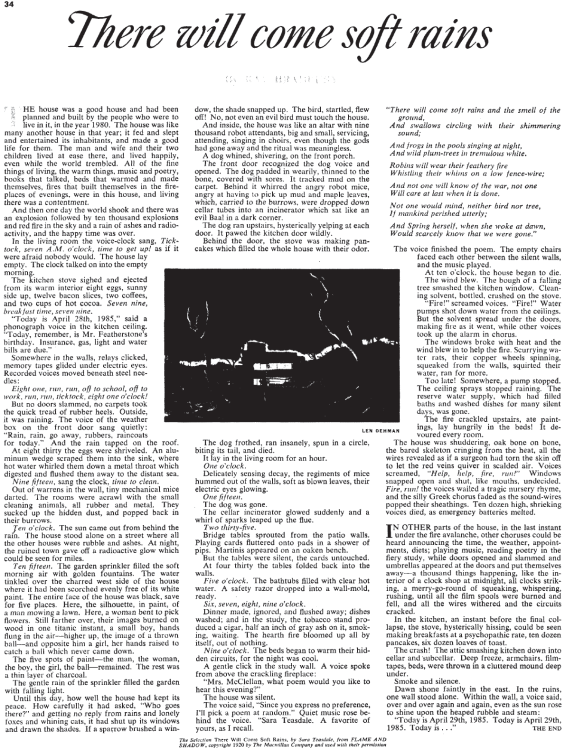
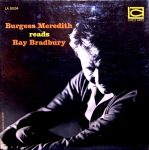

 Dimension X – There Will Come Soft Rains
Dimension X – There Will Come Soft Rains X-Minus One – There Will Come Soft Rains (and Zero Hour)
X-Minus One – There Will Come Soft Rains (and Zero Hour)
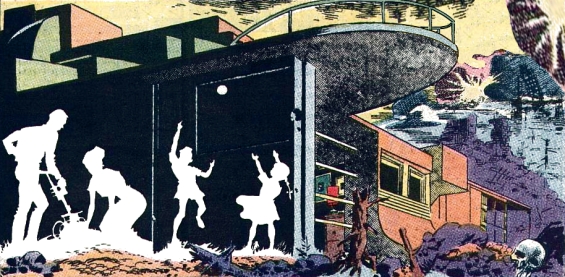



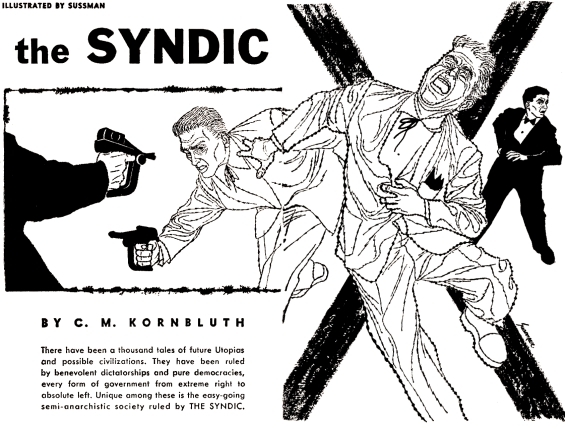


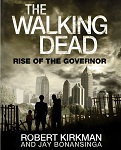


 The Reapers Are The Angels
The Reapers Are The Angels